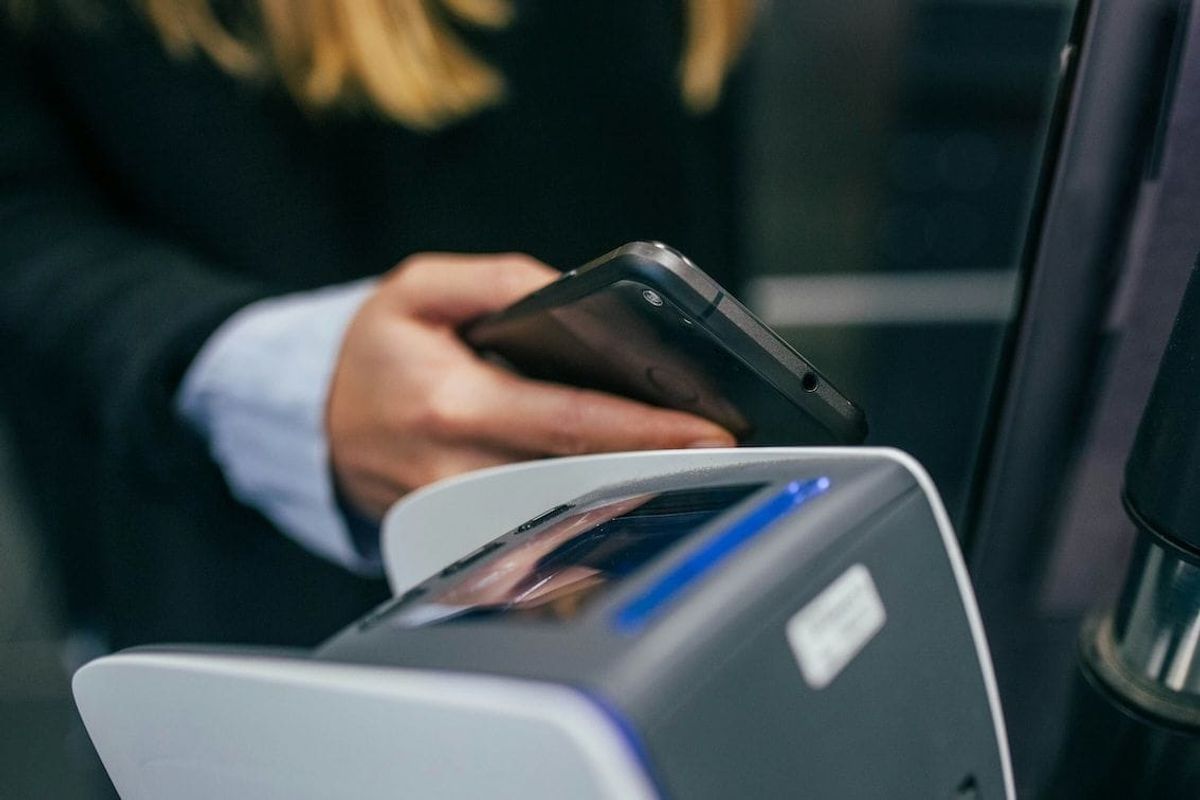A Guide to Promotional Marketing Strategies and Tips

Promotional marketing involves the strategic use of marketing channels to communicate a brand's message, aiming to increase awareness and engagement. By focusing on various techniques, such as social media marketing and direct communication, this approach may help businesses foster stronger connections with their audiences.
Quick Summary
Promotional marketing leverages strategic channels to enhance brand awareness and engagement through techniques like social media marketing and direct communication. It encourages businesses to adapt their strategies based on market dynamics and goals, facilitating stronger customer relationships. Key elements include defining objectives, identifying target audiences, and selecting appropriate marketing channels. Successful campaigns require continuous evaluation and integration of tactics, ensu
While this post provides ideas, it's important to approach promotional marketing with flexibility and conduct research to ensure strategies align with specific business goals and market dynamics.
What is Promotional Marketing?

Promotional marketing refers to activities that aim to share information about a brand, product, or service. It is a part of the marketing mix, which includes product, price, place, and promotion.
Ready to Grow Your Business?
Get a custom strategy tailored to your goals.
Unlike advertising, promotional marketing often involves direct engagement with potential customers and can offer ways to stimulate interest, generate sales, and build long-term relationships. Businesses may use various promotional marketing strategies to achieve specific goals, such as:
- Enhancing brand awareness among existing customers.
- Creating opportunities to nurture leads through targeted offers.
- Exploring innovative campaigns that encourage customer engagement, like referral programs or exclusive promotions.
Understanding the Marketing Mix
The marketing mix, represents elements that guide marketing strategies in competitive markets. Promotional marketing, as part of the marketing mix, intersects with product development, pricing strategies, and distribution decisions to create an integrated marketing plan.
Key Elements of the Marketing Mix:
-Product:Offering high-quality products or valuable content can create a strong foundation for promotional efforts.
-Price:Price adjustments, such as limited-time offers or discounts, may enhance the appeal of promotional campaigns.
-Place:Choosing suitable marketing channels—whether digital platforms or in-person events—can influence campaign reach.
-Promotion:Marketing focuses on activities like social media marketing, email campaigns, and direct communication to engage audiences effectively.
Benefits of Promotional Marketing

Promotional marketing campaigns can help businesses achieve diverse objectives, depending on their strategy and execution. By understanding their goals and audience, businesses may experience benefits such as:
-Increasing Brand Awareness:Promotional efforts, such as influencer marketing or social media posts, can introduce a brand to a wider audience.
-Driving Engagement:Tactics like loyalty programs or personalized offers may encourage customers to interact with the brand.
-Generating Sales:Sales promotions, combined with direct communication, may create immediate purchase incentives.
Although promotional marketing has potential, it's crucial to consider its fit within broader business goals and evaluate the available resources to implement it effectively.
Planning a Promotional Marketing Campaign

A well-thought-out promotional marketing plan can align with a company's objectives and target audience. Developing such a plan may involve several steps:
1.Defining Objectives:Clear goals, such as boosting customer engagement or introducing a new product, can guide the planning process.
2.Identifying the Target Audience:Analyzing buyer personas and audience preferences helps ensure campaigns resonate effectively.
3.Selecting Marketing Channels:Channels such as social media platforms, email marketing, or direct marketing may suit different strategies.
4.Budgeting Resources:Allocating resources thoughtfully can support campaign success while leaving flexibility for unforeseen opportunities.
Incorporating partnerships, such as collaborations with micro-influencers, may also extend the reach and impact of promotional campaigns.
Ready to Grow Your Business?
Get a custom strategy tailored to your goals.
Effective Promotional Marketing Strategies

Promotional marketing strategies vary widely, offering different approaches that may help businesses connect with their audiences. Here are some examples:
-Social Media Marketing:Engaging content on platforms like Instagram or LinkedIn may create opportunities to build customer relationships.
-Content Marketing:Offering valuable content, such as educational posts or product demonstrations, can help establish trust.
-Referral Marketing:Incentives through referral programs may turn satisfied customers into advocates for the brand.
-Influencer Marketing:Collaborations with influencers may enhance a brand's visibility and credibility in specific market segments.
-Email Marketing:Sharing personalized messages, like post-purchase emails or exclusive offers, may nurture leads and encourage loyalty.
These strategies are often most effective when integrated within a broader marketing plan that aligns with the overall business goals and audience needs.
Types of Promotional Marketing

Promotional marketing may encompass a variety of techniques, each with unique strengths:
-Sales Promotions:Tactics such as free shipping, discounts, or limited-time offers may attract attention and stimulate demand.
-Direct Marketing:Personalized approaches like SMS marketing or one-on-one communication may create a sense of connection.
-Viral Marketing:Campaigns designed to spread quickly online can help brands reach a wider audience.
-Loyalty Programs:Rewarding repeat customers with incentives may foster ongoing engagement and positive brand associations.
Carefully considering the goals of each campaign and the preferences of the target audience may influence the choice of promotional strategies.
Measuring the Success of a Promotional Campaign

Measuring the effectiveness of a promotional marketing campaign can provide insights into its impact and areas for improvement. Various metrics and tools may help evaluate the campaign's success:
-Key Performance Indicators (KPIs):Metrics like website traffic, social media engagement, and sales data can offer quantitative insights.
-Customer Feedback:Surveys, focus groups, or online reviews can reveal qualitative feedback on the campaign's reception.
-Analytics Tools:Different platforms or social media dashboards can track performance across channels.
Evaluating these metrics may allow businesses to refine their promotional marketing strategies and align them more closely with their business goals.
Ready to Grow Your Business?
Get a custom strategy tailored to your goals.
Best Practices for Optimizing Promotional Marketing Efforts

Adopting best practices can help maximize the impact of promotional campaigns:
- Integrated Marketing Communications:Ensuring consistency across channels can strengthen the brand message.
-Personalization:Tailoring messages to the preferences of the target audience may improve engagement.
-A/B Testing:Testing variations of campaigns can provide valuable insights into what works best.
-Customer Loyalty Programs:Rewarding repeat customers can foster positive associations and long-term engagement.
-Data-Driven Adjustments:Using analytics to refine campaigns can ensure they remain relevant and effective.
With thoughtful execution, promotional marketing efforts can support broader business objectives.
Conclusion

Promotional marketing offers various opportunities to connect with audiences, increase brand awareness, and generate sales. By understanding the fundamentals of the marketing mix, implementing effective strategies, and continuously evaluating campaign performance, businesses may enhance their promotional efforts.
However, it is essential to approach these strategies with flexibility and ensure they are tailored to specific goals and market conditions. Research, experimentation, and adjustments play a key role in optimizing outcomes.
While no single strategy guarantees success, combining different approaches and learning from each campaign can help build more effective promotional marketing plans over time.
Common Promotional Marketing Mistakes to Avoid
Many businesses unknowingly sabotage their promotional efforts by making critical errors that can damage brand reputation and waste valuable resources. One of the most frequent mistakes is oversaturating customers with promotional messages, leading to fatigue and unsubscribes. When businesses bombard their audience with constant sales pitches without providing genuine value, they risk alienating potential customers and diminishing the impact of future campaigns. Additionally, failing to segment audiences properly often results in irrelevant promotions being sent to the wrong demographics, significantly reducing engagement rates and conversion potential.
Another common pitfall is launching promotions without adequate preparation or testing. Insufficient inventory planning can lead to stockouts during high-demand promotional periods, creating frustrated customers and missed revenue opportunities. Similarly, not testing promotional codes, landing pages, or email sequences before launch can result in technical failures that reflect poorly on the brand's professionalism. Smart businesses conduct thorough quality assurance checks and have contingency plans in place to handle unexpected surges in demand.
Perhaps the most damaging mistake is inconsistent messaging across different promotional channels. When social media posts, email campaigns, and website banners present conflicting information about pricing, terms, or availability, it creates confusion and erodes trust. Successful promotional marketing requires careful coordination across all touchpoints to ensure a seamless customer experience. Establishing clear brand guidelines and implementing approval processes can help maintain consistency while allowing for channel-specific adaptations that optimize performance.
Budget-Friendly Promotional Tactics for Small Businesses
Small businesses often assume that effective promotional marketing requires substantial financial investment, but numerous cost-effective strategies can generate impressive results with minimal budget allocation. User-generated content campaigns represent one of the most powerful low-cost approaches, where businesses encourage customers to share photos, reviews, or testimonials in exchange for small incentives like discounts or feature opportunities. This strategy not only provides authentic promotional content but also builds community engagement and social proof that influences purchasing decisions more effectively than traditional advertising.
Cross-promotional partnerships with complementary businesses offer another budget-friendly avenue for expanding reach without significant costs. For example, a local coffee shop might partner with a nearby bookstore to offer joint promotions, allowing both businesses to tap into each other's customer bases. These collaborations can include bundle offers, shared events, or reciprocal referral programs that benefit all parties involved. The key is identifying businesses that serve similar demographics but don't directly compete, creating win-win scenarios that amplify promotional impact.
Leveraging seasonal trends and local events provides opportunities to create timely, relevant promotions that resonate with target audiences without requiring expensive market research or campaign development. Small businesses can capitalize on holidays, community festivals, or trending topics by creating themed promotions that feel current and engaging. Additionally, implementing customer loyalty punch cards, birthday discounts, or anniversary celebrations can drive repeat business while requiring minimal upfront investment. These tactics focus on maximizing the lifetime value of existing customers rather than constantly acquiring new ones, making them particularly cost-effective for resource-constrained businesses.
Advanced Analytics and Optimization Techniques
Modern promotional marketing success depends heavily on sophisticated data analysis that goes beyond basic metrics to uncover actionable insights about customer behavior and campaign performance. Advanced attribution modeling helps businesses understand the complete customer journey, identifying which promotional touchpoints contribute most significantly to conversions. By implementing multi-touch attribution systems, marketers can allocate resources more effectively across channels and optimize the sequence of promotional messages to maximize impact. Heat mapping and user behavior analysis tools provide detailed insights into how customers interact with promotional content, revealing optimization opportunities that might otherwise remain hidden.
A/B testing should extend beyond simple subject line variations to encompass comprehensive promotional strategy testing. Advanced practitioners test different promotional timing, offer structures, creative approaches, and even entire campaign frameworks to identify the most effective combinations. Cohort analysis allows businesses to track how different customer segments respond to various promotional approaches over time, enabling more sophisticated segmentation and personalization strategies. Machine learning algorithms can now predict optimal promotional frequency for individual customers, preventing oversaturation while maximizing engagement opportunities.
Real-time campaign optimization represents the cutting edge of promotional marketing analytics, enabling businesses to adjust strategies mid-campaign based on performance data. Dynamic content optimization automatically adjusts promotional messages based on user behavior, device type, geographic location, and engagement history. Predictive analytics can forecast campaign performance and suggest budget reallocation recommendations before campaigns conclude. By implementing robust tracking pixels, UTM parameters, and conversion funnels, businesses can create comprehensive dashboards that provide instant visibility into promotional ROI and enable rapid decision-making that improves campaign outcomes.
Ready to Grow Your Business?
Get a custom strategy tailored to your goals.
Frequently Asked Questions
What is promotional marketing and how does it differ from traditional advertising?
Promotional marketing refers to strategic activities that communicate a brand's message to increase awareness and engagement. Unlike traditional advertising, promotional marketing involves direct engagement with potential customers and focuses on building long-term relationships. It includes tactics like social media marketing, referral programs, email campaigns, and exclusive offers. This approach is part of the marketing mix and aims to stimulate interest, generate sales, and create stronger connections between brands and their audiences through personalized, interactive experiences.
What are the most effective promotional marketing strategies for small businesses?
The most effective promotional marketing strategies for small businesses include social media marketing for building customer relationships, content marketing to establish trust through valuable information, referral marketing with incentives for satisfied customers, email marketing with personalized messages, and influencer collaborations with micro-influencers. Sales promotions like limited-time offers and loyalty programs also work well. These strategies are cost-effective when integrated within a broader marketing plan that aligns with business goals and target audience preferences.
How do you measure the success of a promotional marketing campaign?
Measure promotional marketing campaign success using key performance indicators (KPIs) like website traffic, social media engagement, and sales data for quantitative insights. Collect customer feedback through surveys, focus groups, and online reviews for qualitative assessment. Use analytics tools and social media dashboards to track performance across channels. Monitor metrics like conversion rates, click-through rates, and return on investment. Regular evaluation of these metrics allows businesses to refine strategies and align campaigns more closely with business objectives.
What are the key steps to plan a successful promotional marketing campaign?
Planning a successful promotional marketing campaign involves four key steps: First, define clear objectives like boosting customer engagement or introducing new products. Second, identify your target audience by analyzing buyer personas and preferences. Third, select appropriate marketing channels such as social media platforms, email marketing, or direct marketing based on your strategy. Fourth, budget resources thoughtfully while maintaining flexibility. Consider incorporating partnerships with micro-influencers to extend reach and ensure all elements align with broader business goals.
What types of sales promotions work best for increasing customer engagement?
The most effective sales promotions for increasing customer engagement include limited-time offers that create urgency, free shipping incentives, percentage or dollar-amount discounts, loyalty programs with rewards for repeat customers, referral programs that turn customers into brand advocates, and exclusive offers for email subscribers. Personalized promotions based on purchase history and viral marketing campaigns designed to spread quickly online also drive engagement. The key is aligning promotional types with target audience preferences and overall business objectives.
How does promotional marketing fit into the overall marketing mix strategy?
Promotional marketing is one of the four elements of the marketing mix, working alongside product, price, and place to create an integrated marketing strategy. It intersects with product development by highlighting quality offerings, connects with pricing through discount strategies and limited-time offers, and aligns with place decisions by selecting appropriate marketing channels. Promotional activities like social media marketing, email campaigns, and direct communication complement the other mix elements to create cohesive campaigns that effectively reach and engage target audiences.
What are the best practices for optimizing promotional marketing efforts?
Best practices for optimizing promotional marketing include implementing integrated marketing communications for consistent messaging across channels, personalizing content to match target audience preferences, conducting A/B testing to identify effective variations, establishing customer loyalty programs for repeat engagement, and making data-driven adjustments using analytics insights. Focus on creating valuable content, maintaining flexibility in strategy execution, and continuously evaluating campaign performance. Combine different approaches while learning from each campaign to build more effective promotional marketing plans over time.
Related Resources
Calculators
Pricing Guides
Key Terms
Optimization of individual web page elements including content, HTML source code, and meta tags to rank higher in search results.
Keyword DifficultyA metric estimating how hard it would be to rank on the first page of search results for a specific keyword.
Content DecayThe gradual decline in organic traffic and rankings that content experiences over time as it becomes outdated or outranked.
Brand SalienceThe degree to which your brand comes to mind quickly and easily when customers think about your product category.
Answer Engine OptimizationOptimizing content for AI answer engines and conversational search interfaces.
Related Articles

Top Tips for Brand Communicators: Brand and Communication Techniques
In a crowded market, a brand and communication strategy is key to standing out and succeeding. Brand communicators have a huge role to play in shaping a company's identity and making sure its core mes

What is Brand Promotion? Strategies for Building a Strong Brand Identity
Brand promotion isn't just about showcasing logos and catchy slogans; it can also be about making a unique identity. Remember, while this post offers some ideas, it’s essential to conduct your own

Good Social Media Practices: Building an Effective Strategy
In today’s digital world, understanding good social media practices can be important for anyone seeking to establish a successful online presence. Social media platforms can be tools to help build